Don't wanna be here? Send us removal request.
Text
Character who doesn't get to die & character who doesn't get to live. Is that anything.
12K notes
·
View notes
Text
I!! Made!! Art!! I love the Starless sea therefore OBJECTS!


7 notes
·
View notes
Text
“The merchant laughed. “Everyone wants the stars. Everyone wishes to grasp that which exists out of reach. To hold the extraordinary in their hands and keep the remarkable in their pockets.” ― Erin Morgenstern, The Starless Sea
16 notes
·
View notes
Text
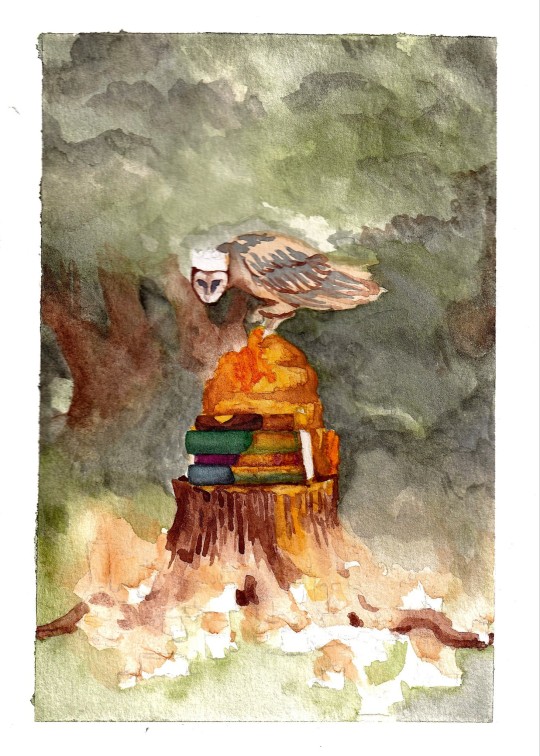
Okay, so I think I need to start from scratch here. I definitely went too dark too fast, and I don't think I can save the candlelit area.
Otherwise, I'm pretty happy with the colors!
41 notes
·
View notes
Text
🐝🗝🗡
Drew the fox statue from the beginning of the starless sea that the acolyte pets. Found it beautiful that it's worn from so many doing this before her. The watermark signature thing is different since that's my bluesky user, it's still my art.

7 notes
·
View notes
Text
I love The Starless Sea because what if wonderland wasn't inside your closet or preceded by following a magical animal, what if it was tucked away in a quiet alleyway. What if it was just around the corner of your old hometown, or in the forests you used to play in as a child. What if it said "I will wait for you" and gives you time to grow into yourself before being presented to you. What if it wasn't the stuff of dreams, but of familiar invitations, and all you need to be let inside is to open the right door
155 notes
·
View notes
Text

Welcome to The Harbor
I also have a print shop now! :] this one's available along with most of my other large pieces
38 notes
·
View notes
Text

“Oh turpentine erase me whole / I don’t want to live my life alone”
A piece I made roughly a year ago, inspired by Erin Morgenstern’s The Starless Sea and the song “Honeybee” by Steam Powered Giraffe. I don’t know how I found the motivation to accomplish something like this.
42 notes
·
View notes
Text
Sketchbook work tonight! BARN OWLS. They definitely get my vote for creepiest owl. Like, why are they wearing a mask? What are they hiding that's so important they needed to GROW A MASK.
Anyway, if you've ever read The Starless Sea by Erin Morgenstern and you didn't picture a Barn Owl as the Owl King who graduated from the Parliament of Owls by eating the eyes of fate.... Here ya go. Gotta be.
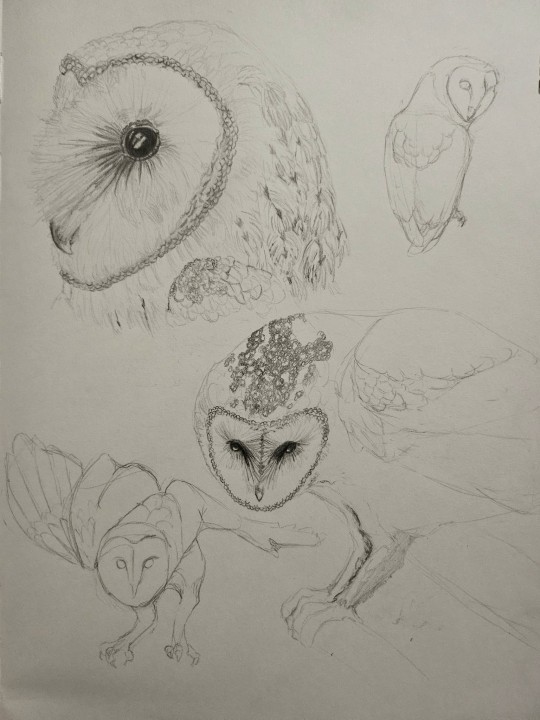
21 notes
·
View notes
Text
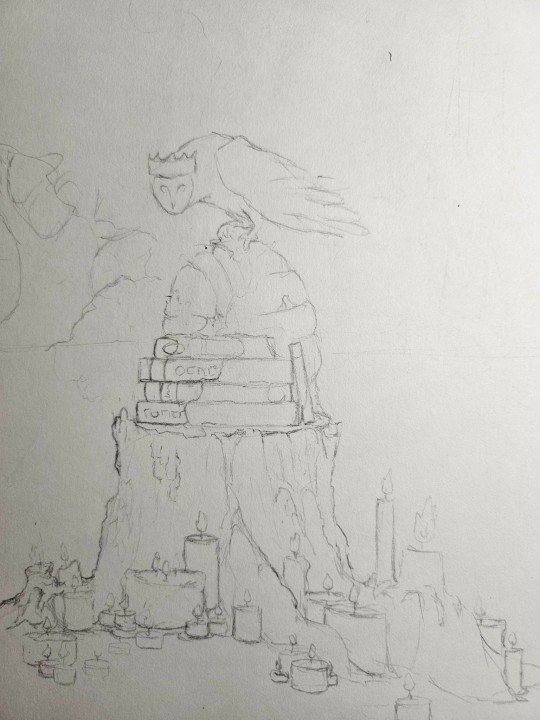
Sketch for a painting I'm working on. If you've never read The Starless Sea by Erin Morgenstern, I highly recommend it. That's a Top Shelf Book (tm) for sure, for sure.
I've been wanting to draw this scene forever, so I started some concept sketches and thumbnails, then decided to go back and read the passage on to find out it was COMPLETELY different from how I remembered. So I scrapped them all, and here we are.
#the starless sea#tss#cool art!#this is gorgeous!#everything is shaped so well!#even down to the bark on the stump!#and all the candles!#it’s so good!
32 notes
·
View notes
Text
Starless Sea posting part 18
Hi, I'M BACK AFTER LIKE TWO MONTHS!
these are poems i wrote about Erin Morgenstern's book The Starless Sea! we're currently in the section Written in the Stars!
first one:

next one:

last one!

34 notes
·
View notes
Text
He wanders alone but safe in his loneliness. Confused but comforted by his confusion. A blanket of bewilderment to hide himself under.
- the starless sea by erin morgenstern
#the starless sea#tss#quotes#a blanket of bewilderment to hide himself under is an excellent phrase#very evocative#also very relatable
45 notes
·
View notes
Text
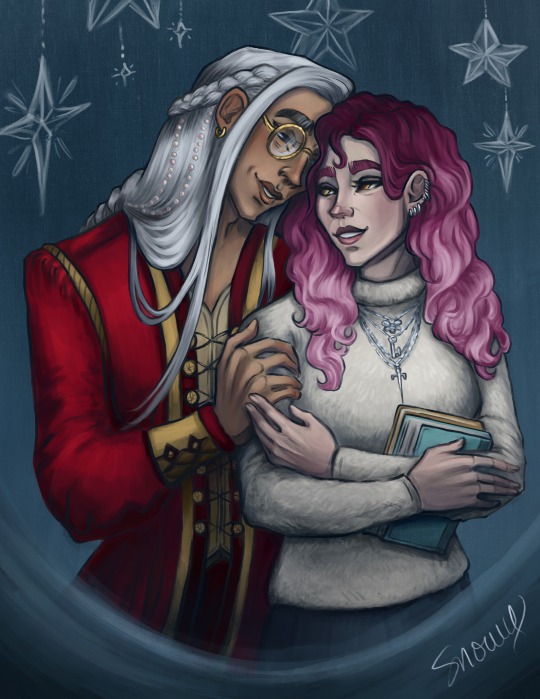
Commission for @mj-bites of Mirabel (Fate) and the Keeper from the Starless Sea, thanks so much, friend!
49 notes
·
View notes
Text
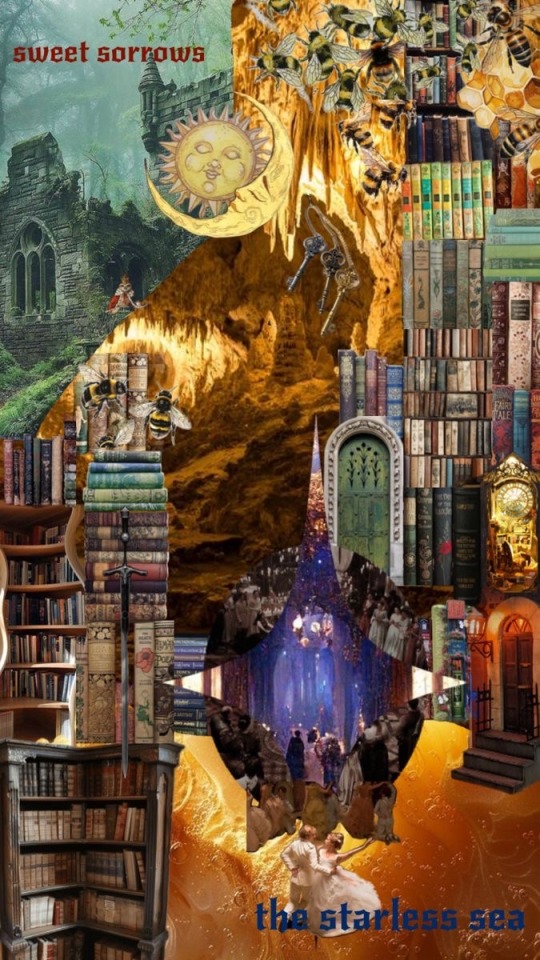
Inspired by The Starless Sea by Erin Morgenstern originally created on Pinterest
16 notes
·
View notes
Text
one small thing I like about the starless sea is the whole thing of like. even if you fuck up and miss opportunities and don't make the right choices wonderland will wait for you. maybe the magical adventure of a lifetime comes to you later, when you aren't a child anymore, and maybe that's for the better. magic as something that spans a lifetime. adventure and wonder as something that can drop into your life anytime, anywhere
502 notes
·
View notes
Text
Not all stories speak to all listeners, but all listeners can find a story that does, somewhere, sometime. In one form or another. Erin Morgenstern, The Starless Sea
70 notes
·
View notes
